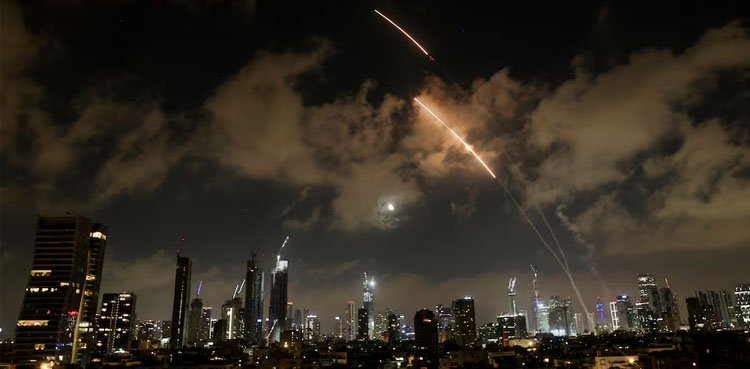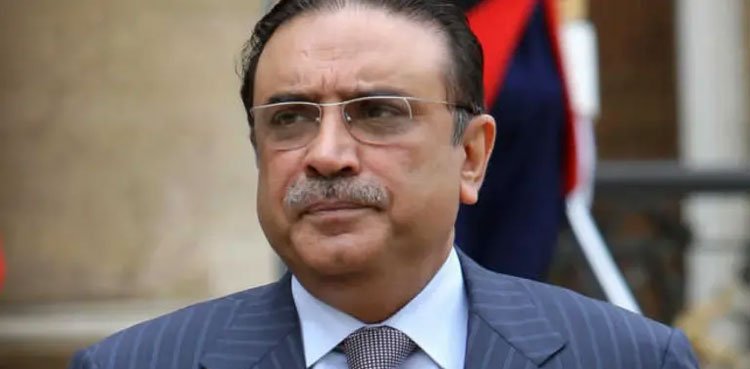The federal information minister and the military’s spokesperson are set to brief the top leadership of all political parties today on the prevailing national security situation amid sky-high tensions with India, state media reported.
An attack on April 22 in occupied Kashmir’s Pahalgam killed 26 people, mostly tourists, in one of the deadliest assaults since 2000. India has implied cross-border links without evidence, while Pakistan has rejected the claim and called for a neutral probe.
Tensions have since spiked, with Pakistan reinforcing its forces as it expected an incursion and India’s premier granting “operational freedom” to his military. As temperatures remain high, with the military warning of a “swift” response to any misadventure by New Delhi, diplomatic channels have remained engaged to prevent conflict.
State-run Radio Pakistan and PTV News reported that Inter-Services Public Relations (ISPR) Director General Lt General Ahmed Sharif Chaudhry and Federal Information Minister Attaullah Tarar would jointly brief the top leaders of “all political parties” on the situation with India today.
The reports did not specify a time or venue for the briefing.
According to Radio Pakistan, the high-level background briefing will focus on national security in the context of Pakistan-India relations and the “implications of recent developments”.
“Participants will be briefed on the defensive preparedness of Pakistan’s armed forces, ongoing diplomatic efforts, and the official stance of the state on key issues,” the report read.
PTV News highlighted that in the current circumstances, the briefing was a “great example of national unity, solidarity and consensus”.
Without investigation, India had accused “cross-border linkages” of the attackers and escalated tensions with Pakistan through military and diplomatic actions.
India cancelled visas of Pakistani travellers, held the Indus Water Treaty in abeyance, initiated skirmishes along the Line of Control (LoC) and hinted at potential airstrikes.
Pakistan denied involvement and issued retaliatory steps.
The standoff, marked by exchange of fire on the LoC and tit-for-tat actions, has raised fears of broader conflict, prompting international calls for restraint and renewed dialogue.
In the latest show of strength, Pakistan yesterday successfully tested an improved version of its nuclear-capable Abdali missile, significantly increasing its range to 450 kilometres.
Chief of Army Staff (COAS) General Asim Munir on Thursday asserted that any “misadventure” by India would be met with a “swift, resolute and notch-up response”. The next day, the army’s top brass also warned India of a “sure and decisive” response should it attempt to impose war.
To prepare itself for any military action by India, Azad Jammu and Kashmir (AJK) has accelerated efforts to replenish wheat flour stocks in vulnerable areas along the LoC.
It is increasing reserves in forward locations to meet the needs of residents for at least two months and relocating food depots from areas exposed to potential shelling or military activity to relatively safer zones.
PTI decides not to participate in briefing
Separately, in a statement on X, PTI said its participation in the briefing was “unnecessary” as the party believed there was “no serious attempt to create a national consensus” by the government and that there was no intention to include PTI founder Imran Khan either.
The party said it had always unequivocally condemned every kind of terrorism in all its forms.
It said that the government should have immediately convened a multi-party conference, so that a common course of action could have been drawn up by taking all parties into confidence.
“Unfortunately, the government wasted this opportunity,” the party said, adding that not only was the multi-party conference not convened, but instead, “a one-sided briefing is being given by a government minister”.
“Considering all these factors, the PTI political committee has unanimously decided that the party will not participate in the briefing,” the statement read.
Iran FM expected to visit Pakistan, India next week
As several friendly countries and global powers have been attempting to reduce Pak-India tensions, Iran’s Foreign Minister Abbas Araghchi is expected to visit Pakistan tomorrow, according to Iranian media.
Araghchi was expected to visit Pakistan on Monday to “discuss the recent developments at the regional and international levels”, Iran’s state news agency IRNA quoted Iran’s Foreign Ministry spokesperson Esmaeil Baqaei as saying.
Araghchi would also pay an official visit to India later next week, the spokesperson added. Iran’s semi-official Fars News and Mehr News Agency also reported the same.
Iran on April 25 had offered to mediate between Pakistan and India as tensions heightened in the wake of the Pahalgam attack. The next day, Prime Minister Shehbaz Sharif spoke on the phone with President Masoud Pezeshkian, welcoming Iran’s readiness to calm the situation.
OIC, Malaysia urge restraint
Meanwhile, continuing his diplomatic engagements, Deputy PM and Foreign Minister Ishaq Dar today spoke on phone with his Malaysian counterpart, Dato Seri Mohamad Hassan, to brief him on the current regional developments.
FM Hasan, expressing support for Pakistan’s position, called for restraint by all parties, the Foreign Office said.
During their call, Dar “categorically rejected India’s provocative actions, including its baseless allegations [and] inflammatory propaganda”. He termed India’s suspension of the Indus Waters Treaty “an outright violation of treaty provisions and international legal obligations”.
While reaffirming Pakistan’s commitment to regional peace and security, Dar asserted that Pakistan reserved the “right to safeguard its sovereignty and national interest”.
Both leaders agreed to maintain close contact on the evolving situation, the FO added.
The Organisation of Islamic Cooperation (OIC) yesterday had called for restraint and the “urgent resumption of dialogue” between Pakistan and India to de-escalate the situation.
In a statement, the OIC General Secretariat expressed its “deep concern over the deteriorating security situation in the South Asian region”.
“It stressed the need to resolve differences through peaceful means, in accordance with international law and the United Nations Charter, to safeguard peace, security, and stability in South Asia.”
The OIC recalled the decisions of the Islamic Summit and the resolutions adopted by the OIC Council of Foreign Ministers that reaffirmed the organisation’s “unwavering support for the Jammu and Kashmir question”.
Noting that the unresolved issue of Kashmir remained the “core challenge to lasting peace and stability in the region”, the OIC urged the international community to intensify efforts to find a peaceful resolution to it, in line with the relevant UN Security Council resolutions.
Bilawal’s X account blocked in India
In a statement issued today, according to Associated Press of Pakistan, Bilawal House spokesperson Surendar Valasai condemned India’s move to block the X account of PPP Chairman Bilawal Bhutto-Zardari.
He described the action as a retaliatory response to the party leader’s “unequivocal and bold stance on the Pahalgam incident”.
The spokesperson said India’s move to block the PPP chairman’s X account proved that India was an undemocratic country and its premier was an “extremely cowardly person”.
Separately, PPP Senator Sherry Rehman, in reaction to the Indian step to block Bilawal’s X account, said that suppressing voices does not hide the truth.
She added that the Indian government should present evidence and not resort to censorship.
“Efforts to suppress critical voices are increasing concern not only in Pakistan but also globally,” the PPP leader said.
More to follow




